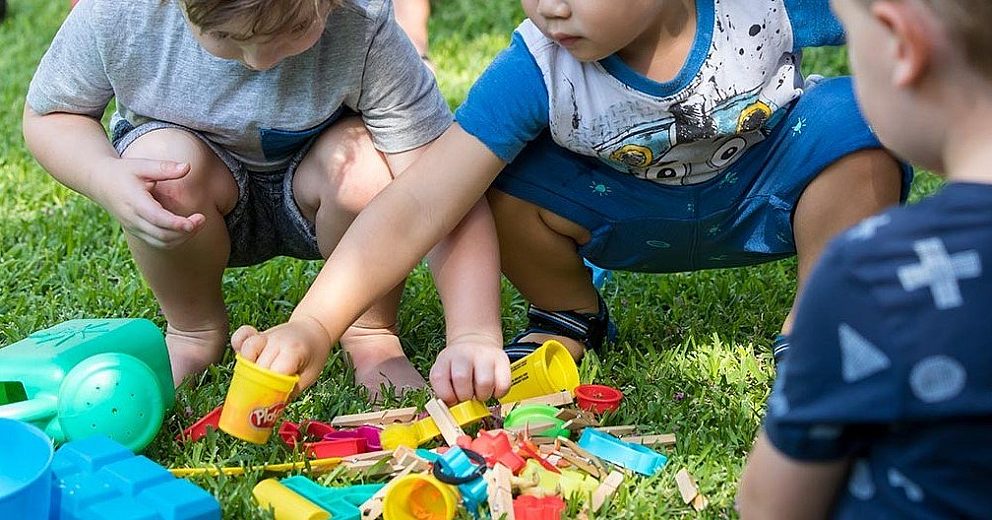
Workshop builds momentum for collaborative child development initiative
Dec 02, 2025
May 15, 2023

The 2023–2024 Federal Budget handed down last week demonstrates a welcome commitment by the government to strengthen not only Medicare, but to bolster healthcare funding and policy more broadly.
A total $27.9 billion of new investment in the Australian healthcare system was announced, including $6.1 billion to strengthen Medicare, a $259.5 million commitment for critical new healthcare infrastructure, and a further $1.1 billion in preventative health spend.
From 1 November, a GP who bulk bills an eligible patient for a standard consultation in a metropolitan area will receive a bulk billing incentive benefit of $20.65 instead of $6.85. In remote areas, the bulk billing incentive for a standard consultation will increase from $13.15 to $39.65. Incentives will cover face-to-face and telehealth GP consultations.
MyMedicare is a new voluntary scheme designed to create a stronger relationship between patients and their primary care teams. It will provide practices with more comprehensive information about their regular patients, while giving patients and their care team access to additional funding packages, tailored to their health needs, including:
- $98.9 million in MyMedicare incentive payments
- $5.9 million to make it easier for GPs to provide telehealth consultations, and a further $98.2 million in new Medicare rebates for consultations of 60 minutes or longer
- $445.1 million in workforce incentives for primary care practices to employ various health professionals to deliver team-based, patient-centred and multidisciplinary care
- a 30 per cent increase to patient rebates for care provided by nurse practitioners, who will also be enabled to prescribe PBS medicines and provide services under Medicare.
PHNs will be funded to commission multidisciplinary care from allied health, nurses and midwives to support smaller or solo primary care practices, to increase patient access and improve the management of chronic conditions.
- $30.5 million has been committed to improve the accessibility and affordability of general practice in rural areas.
- Nursing, midwifery, First Nations health workers scholarships will be amended and clinical placements boosted to address primary care, aged care and regional workforce shortages.
Primary Health Networks (PHNs) will be funded to extend the PHN After Hours programs for another 2 years and to improve access to primary care for multicultural communities and for people experiencing homelessness ($143.9 million).
The Budget includes additional funding to support the Medicare Urgent Care Clinics (UCCs) program, including 8 new Medicare UCCs – including two in the Brisbane North PHN region at Redcliffe and in the vicinity of The Prince Charles Hospital.
Aged care workers will receive their largest ever pay rise.
Multiple funding streams will support older Australians to access primary care whether in RACFs (with $112 million in incentives for GPs), or while living independently in their own home ($166.8 million and an additional 9,500 home care packages).
A new Aged Care Taskforce will be established to review aged care funding arrangements and develop options to make the system fair and equitable for all Australians ($0.7 million). The National Aboriginal and Torres Strait Islander Flexible Aged Care Program will receive increased funding ($77.3 million) to ensure First Nations elders access high quality, culturally safe care.
A $17.8 million investment will help upskill the broader health workforce to better recognise and respond to mental health issues, and a further $33.6 million has been committed to alcohol and drug prevention and treatment programs.
The package looks to divert funding to extend critical services, address urgent gaps and lay the groundwork for future system reform. Read the Mental Health Budget summary.
$17.1 million has been committed to improving health parity for First Nations people by expanding both the Deadly Choices program and the Practice Incentives Program Indigenous Health Incentive ($17.1 million).
An LGBTIQA+ Health Advisory Group and a $0.9 million 10-year national action plan will be developed to support the health and wellbeing of LGBTIQA+ people.
More than 300 common medicines will be cheaper for 6 million Australians who will be able to buy 2 months’ worth of medicine with a single prescription – halving visits to the GP and pharmacy. The PBS will be expanded to include COVID-19 medicines.
Read the Department of Health and Aged Care’s Budget summary.

We acknowledge the Traditional Custodians within our region: the Jagera, Turrbal, Gubbi Gubbi, Waka Waka and the Ningy Ningy peoples of where we meet, work and learn. Brisbane North PHN is committed to reconciliation. Our vision for reconciliation is where the stories of our First Nations’ people are heard and shared, and networks are formed.